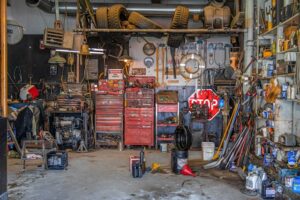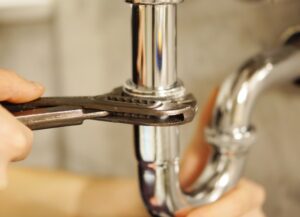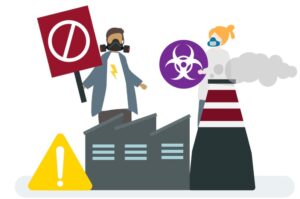
Residential flooding can be caused by heavy rainfall, leaking water pipes, clogged sewer lines, or broken pipes. The solution to dealing with a flooded house is immediately addressing the problem before it deteriorates to more water damage. When it comes to residential flooding, the quicker you deal with it, the less the likelihood of severe water damage. Here is how to deal with the mess.
Cut off the electricity.
When water and electricity mix, the result is a disaster. Before anything else, ensure you disconnect all the electricals by cutting off the primary source of electricity. As you do so, ensure you wear protective gear and do not wade through the standing water with power on. If water is blocking your way, call an electrician immediately.
If possible, stop the source of flooding.
If flooding is coming from your plumbing system rather than nature, it is easier to stop it at its source. Shut off the primary water valve if you can. If the flooding results from a storm and you are in danger, evacuate the area until the local authority says it is clear to return.
Salvage essential valuables
Although water damage occurs instantly, you can salvage your valuables by acting fast. Ensure your documents are safe and remove all the items on the floor like rugs. Try to move items towards higher areas before they soak in water.
Start the water damage restoration process.
The earlier you clear the standing water, the better. Start the clearing process as soon as you can to prevent further water damage on your floor, insulation, walls, and other building materials. Calling flood and water restoration professionals at this point is helpful to help you clean up your home and dry it thoroughly. Get a water damage restoration company that can respond quickly and begin cleaning before molds start to grow.
Dry out your home
Drying out your home is a significant part of the restoration process because moisture quickly leads to the growth of molds and mildew. The best thing about working with flood and water restoration experts is that they have top-notch drying equipment to ensure they dry your home completely after a flood. Plus, they come in teams to deal with the water damage quickly before it impacts the structural integrity of your building.
Prevent mold and mildew
Water damage can have far-reaching effects in the form of mold growth. In fact, mold growth is a secondary effect that is worse than the initial water damage because it is hazardous to your health. Note that you may have to remove your flooring and carpeting if the surface can’t be dried completely. The good thing about working with water damage professionals is that they are knowledgeable in preventing mold growth following water damage.
Prevent future water damage
The battle against water damage on your property is not over unless you deal with the source of the problem. Have the experts find out the root cause and address it. For instance, they can add more insulation or reroute pipes to prevent any future issues. Replace your floor, carpeting, baseboards, and insulation if they have been damaged by water.
The takeaway
The key to addressing a flooded house is to act fast. Calling water damage professionals is the best way to handle the problem quickly.
Looking for more tips like this? Check out the rest of our blog today to keep reading.




